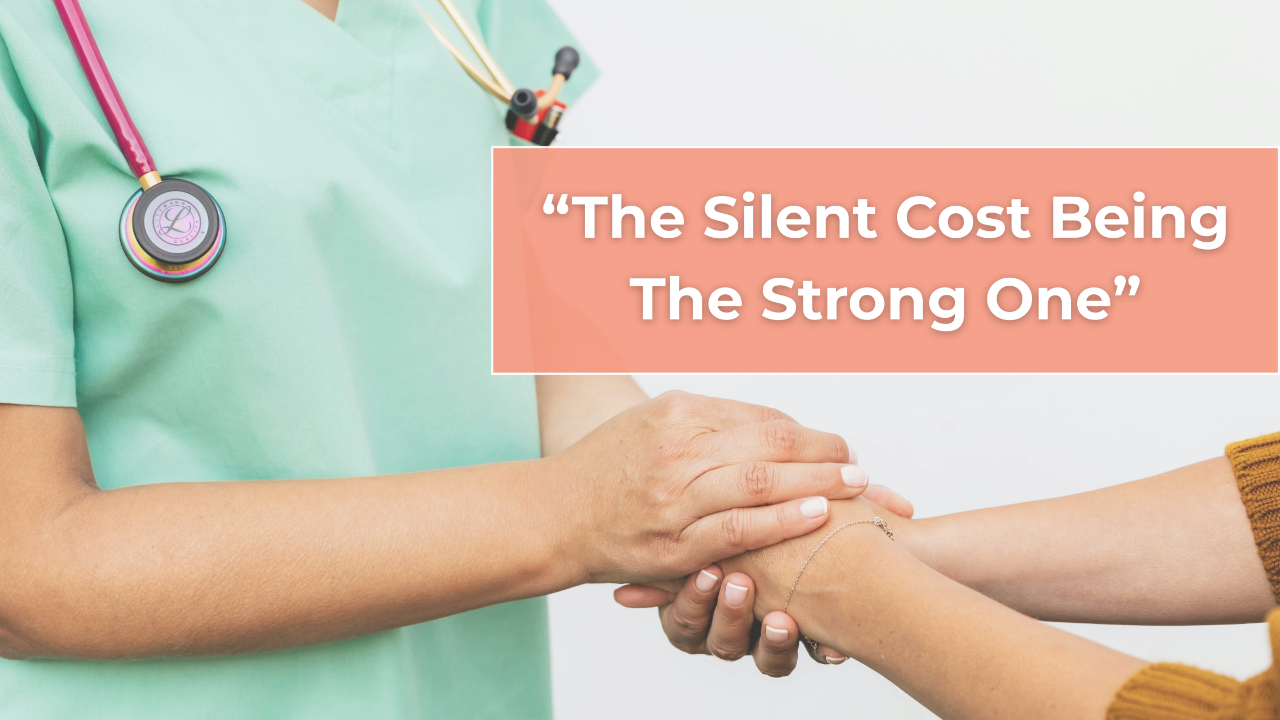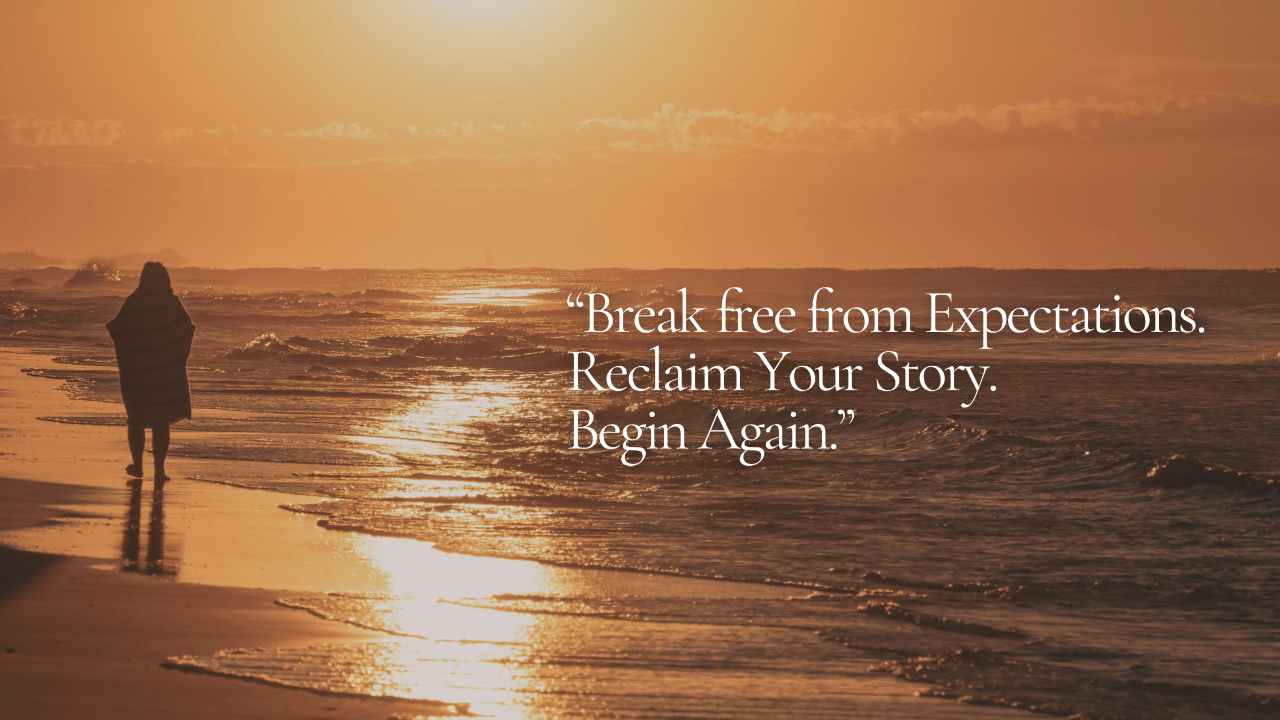When Caregiving Becomes Self-Destruction: Are You Headed for a Breaking Point?
Apr 13, 2025
You may not be a nurse, but chances are you’ve worn the caregiver hat more times than you can count.
Maybe you’re the one your family leans on. The colleague who always picks up the slack. The friend who listens when others need to vent, even when you’re silently falling apart inside. You keep showing up, giving, fixing, carrying—until suddenly, you realize you have nothing left to give.
That’s exactly what happened to Brooke Forsythe, a nurse who lived her life on both sides of the medication cart. In her powerful memoir Dispensing Pills, Popping Pills, Brooke shares her descent from caregiver to patient, bravely exposing what happens when you care for everyone else at the expense of yourself. Her story is raw, emotional, and uncomfortably familiar—for anyone who has ever lost themselves while trying to hold everything else together.
The Invisible Cost of Being the “Strong One”
Brooke’s spiral didn’t happen overnight. It happened slowly, over time—one missed meal, one ignored emotion, one extra shift, one more “yes” when her body was screaming “no.” It happened the way it does for so many of us: gradually, silently, and beneath a smile.
That’s the danger of living without boundaries. It doesn’t look destructive at first. In fact, it’s often praised. People admire your work ethic, your selflessness, your ability to juggle it all. But underneath that praise is a dangerous reality: you’re burning out, and no one’s going to stop you—because you’re too good at pretending you’re fine.
Eventually, your body and mind will make you pay for what you’re trying to ignore.
The Science Behind Burnout and Breakdown
Chronic stress doesn’t just make you tired—it rewires your brain and body. Research shows that prolonged exposure to high cortisol levels (the stress hormone) damages areas of the brain responsible for emotional regulation, memory, and decision-making. Over time, your nervous system shifts into a constant state of hypervigilance or complete shutdown—leaving you anxious, irritable, exhausted, or numb.
Without boundaries, your brain treats every task and request as a survival threat. You stay in fight-or-flight mode until your body can’t take it anymore—and the crash comes hard. For Brooke, it came in the form of anxiety, depression, and dependency. For others, it may show up as illness, emotional outbursts, or a breakdown that no amount of coffee or willpower can push through.
Are You Contributing to Unhealthy Dynamics?
Here’s the uncomfortable truth: when you say yes to everything, you're not just hurting yourself—you’re enabling the very dynamics that drain you.
- When you rescue others constantly, they don’t learn to carry their own load.
- When you overfunction, others underfunction.
- When you don't communicate your needs, people assume you don’t have any.
What feels like being helpful often becomes a form of self-neglect—and it reinforces unhealthy patterns in your relationships and workplaces. People pile things on you because they know you’ll take it. But ask yourself: is that really love? Or is it codependency wrapped in a gold star?
You Have Two Choices
There really are only two options here:
- You either learn to honor your own limits now…
- …or life will force you to later—often in the form of a breakdown.
You don’t have to hit rock bottom to start healing. You don’t have to become the patient to begin reclaiming your peace.
But you do have to make a choice. A conscious one.
To set boundaries. To say no without guilt. To rest without shame. To acknowledge your own needs as valid and essential—not optional.
Because no matter how strong you are, you were never meant to carry the world alone.
Take Inventory: Where Are You Losing Yourself?
Here’s a gentle but honest invitation to reflect:
- Are you constantly giving more than you receive?
- Do you feel resentful, but keep saying yes?
- Are you afraid people will be upset if you stop doing everything?
- Do you use busyness to avoid feeling your emotions?
- Are you ignoring signs from your body that you’re not okay?
And perhaps most importantly: Are you contributing to the very imbalance you’re exhausted by?
Awareness is the first step to freedom. You cannot change what you do not acknowledge.
It’s Time to Rewrite the Story
Brooke Forsythe’s story reminds us that healing doesn’t come from pushing harder—it comes from finally letting go. From choosing rest over performance. Boundaries over burnout. Wholeness over people-pleasing.
You don’t need permission from anyone to care for yourself. You don’t need a breakdown to justify change. You don’t need to earn your worth by sacrificing yourself.
You simply need to decide that your mental, emotional, and physical wellbeing matters—and act like it.
Let Brooke’s story be the wake-up call that you don’t need to hit your breaking point to start living differently.
Your healing starts the moment you say: “I matter, too.”
View The Entire Collection
See all our blog posts to discover valuable insights and tools for navigating trauma and healing with guidance and support.











